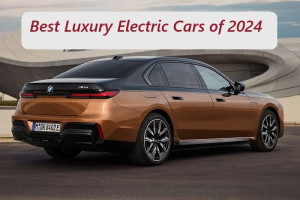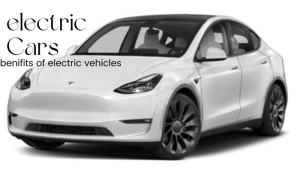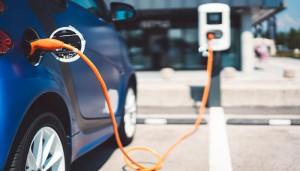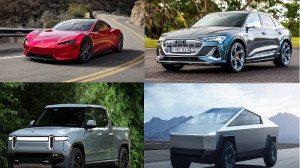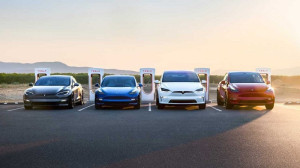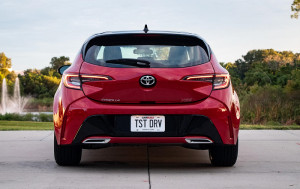Electric Cars vs. Gas Cars: Which is Better for the Environment?
Uncover the benefits of EVs, including lower operational costs, reduced maintenance, and the evolving charging landscape.

The gasoline-powered vehicles – they've zoomed us around for decades, trusty steeds in the highway rodeo. But hold on, pardner, because these trusty steeds also pack a mean punch of problems. Let's saddle up and explore the dusty trail of their environmental and health troubles, with some comparisons and examples to keep it lively!
Coughing Cities: Imagine Los Angeles, usually shimmering like a movie star but choked in a haze of smog so thick you need sunglasses for air. That's partly thanks to our gas-guzzlers. They cough out nasty stuff like carbon monoxide, nitrogen oxides, and microscopic soot, turning cities into soup bowls of bad air. It's like breathing in second-hand smoke from a whole herd of fire-breathing dragons!
Climate Calamity: Picture Earth as a cosy cabin in thewoods, but with the fireplace cranked up full blast. Gasoline vehicles throwblankets of greenhouse gases into the atmosphere, trapping heat like grandma'sitchy wool sweater. This heats the planet, melting glaciers faster than ice
cream on a summer day, leading to rising sea levels and wonky weather like agrumpy gnome throwing tantrums.
Health Hassles: Think of your lungs as delicatebutterflies fluttering in a meadow. Gasoline fumes are like toxic pesticides,harming butterflies and humans alike. They can trigger asthma attacks, lungdiseases, and even heart problems. It's like living next to a factory thatspews lousy breath all day long.
Oil Dependence: Imagine being tied to a grumpy camel asyour only means of travel. That's how reliant we are on oil forgasoline. This dependence makes us vulnerable to price hikes and political disputesover oil-rich lands. It's like being at the mercy of a moody teenager whocontrols your car keys.
Noise pollution: Gasoline-powered vehicles contribute significantly to noise pollution, emitting a cacophony of sounds that disrupt the tranquillity of urban and suburban environments. The internal combustion engines in these vehicles generate noise through the constant ignition of fuel, the operation of mechanical components, and the expulsion of exhaust gases. The roaring engines, whirring transmissions, and screeching brakes collectively create a pervasive and persistent background noise. This noise pollution not only affects the auditory experience of individuals but also poses potential health risks, including stress, sleep disturbances, and increased cardiovascular problems. As cities continue to grow and traffic congestion intensifies, the adverse effects of gasoline-powered vehicle noise on both the environment and human well-being become more pronounced, highlighting the need for sustainable transportation alternatives to mitigate this form of pollution.
Eco-Friendly Replacement of Gasoline-powered Cars:

The good news? Just like the dusty trail leads to a hidden oasis, these problems are paving the way for cleaner solutions! Electric cars are like whisper-quiet horses, gliding through cities without coughing out fumes. So, while gasoline-powered vehicles have served us well, their problems are becoming more challenging to ignore. But let's not get stuck in the dust! We can embrace cleaner technologies and create a future where our journeys are healthier, less dependent, and kinder to the planet.
How electric cars (EVs) are more beneficial for the environment rather than Gasoline powered cars:
Zero tailpipe emissions: First off, ditch the fumes! Unlikegasoline guzzlers, EVs run on pure electric power, meaning they cough out zerotailpipe emissions. That's like Thanos snapping his fingers on air pollution.Cleaner air means healthier lungs for everyone.
Energy efficiency: EVs aren't just about avoiding nasty clouds. They're also energy efficiency champs. Imagine a gasoline car is like a leaky bucket, constantly slurping up fuel and wasting a good chunk on heat and friction. EVs, on the other hand, are like sleek, sealed containers, squeezing every drop of juice out of their batteries. This translates to way less energy used, which means less reliance on fossil fuels and a happier Mother Earth.
Smooth Engine: And speaking of happy, think about thequiet revolution EVs are bringing. No more engine roars, waking up theneighbourhood rooster! EVs glide silently through the streets, creating asymphony of peace and tranquillity. Imagine cruising down a coastal road with
the wind in your hair and the only sound being the gentle hum of the electricmotor.
Advanced technology: EVs are like technological playgroundson wheels. They're packed with excellent features like instant torque for zippyacceleration, regenerative braking that puts wasted energy back into thebattery, and even fancy self-driving tech (though keep your hands on the wheelfor now!). Owning an EV is like being a part of the future, whizzing past thegas stations like a time-travelling DeLorean.
EVs vs. gas cars: which one is your cup of tea?
Of course, no superhero is perfect. EVs take longer to charge thantheir gasoline counterparts, and the upfront cost can be higher. But just likeany good origin story, the challenges make the victory even sweeter. Plus, withcharging infrastructure growing faster than a weed in springtime, thoseconcerns are shrinking in the rearview mirror. The latest innovations in EVs have revolutionized thecharging landscape, allowing users to charge their vehicles more rapidly than
ever before. With advancements such as high-capacity batteries, improvedcharging infrastructure, and innovative charging protocols, EVs are breakingthrough the limitations that were once associated with slow charging times.
Now, drivers can experience significantly faster charging speeds, making electric vehicles not only environmentally friendly but also increasingly convenient for daily use. These developments mark a pivotal moment in the evolution of electric transportation, and communicating this progress helps dispel outdated perceptions about the inconvenience of charging, making it clear that the future of EVs is both fast and efficient.
So, should you choose an EV over a gasoline car? Well, suppose you want to be a champion for the environment, enjoy a quieter ride, embrace cutting-edge technology, and fuel your adventures with clean energy. In that case, the answer is a resounding "Yes!" EVs aren't just cars; they're rolling statements about the future we want to create. So, hop on board and let's electrify the world, one watt at a time!
Bonus points for using EVs over Gas cars:
Aside from its eco-friendly attributes, electric vehicles (EVs) offer a myriad of benefits that contribute to their growing popularity. One key advantage is their efficiency in energy conversion, leading to lower operational costs compared to traditional internal combustion engine vehicles. Additionally, electric cars often have fewer moving parts, resulting in lower maintenance requirements and longer lifespans. Furthermore, the continuous development of charging infrastructure and government incentives for EV adoption contribute to the overall appeal of electric vehicles, making them a compelling choice for environmentally conscious and cost-aware consumers alike.

The gasoline-powered vehicles – they've zoomed us around for decades, trusty steeds in the highway rodeo. But hold on, pardner, because these trusty steeds also pack a mean punch of problems. Let's saddle up and explore the dusty trail of their environmental and health troubles, with some comparisons and examples to keep it lively!
Coughing Cities: Imagine Los Angeles, usually shimmering like a movie star but choked in a haze of smog so thick you need sunglasses for air. That's partly thanks to our gas-guzzlers. They cough out nasty stuff like carbon monoxide, nitrogen oxides, and microscopic soot, turning cities into soup bowls of bad air. It's like breathing in second-hand smoke from a whole herd of fire-breathing dragons!
Climate Calamity: Picture Earth as a cosy cabin in thewoods, but with the fireplace cranked up full blast. Gasoline vehicles throwblankets of greenhouse gases into the atmosphere, trapping heat like grandma'sitchy wool sweater. This heats the planet, melting glaciers faster than ice
cream on a summer day, leading to rising sea levels and wonky weather like agrumpy gnome throwing tantrums.
Health Hassles: Think of your lungs as delicatebutterflies fluttering in a meadow. Gasoline fumes are like toxic pesticides,harming butterflies and humans alike. They can trigger asthma attacks, lungdiseases, and even heart problems. It's like living next to a factory thatspews lousy breath all day long.
Oil Dependence: Imagine being tied to a grumpy camel asyour only means of travel. That's how reliant we are on oil forgasoline. This dependence makes us vulnerable to price hikes and political disputesover oil-rich lands. It's like being at the mercy of a moody teenager whocontrols your car keys.
Noise pollution: Gasoline-powered vehicles contribute significantly to noise pollution, emitting a cacophony of sounds that disrupt the tranquillity of urban and suburban environments. The internal combustion engines in these vehicles generate noise through the constant ignition of fuel, the operation of mechanical components, and the expulsion of exhaust gases. The roaring engines, whirring transmissions, and screeching brakes collectively create a pervasive and persistent background noise. This noise pollution not only affects the auditory experience of individuals but also poses potential health risks, including stress, sleep disturbances, and increased cardiovascular problems. As cities continue to grow and traffic congestion intensifies, the adverse effects of gasoline-powered vehicle noise on both the environment and human well-being become more pronounced, highlighting the need for sustainable transportation alternatives to mitigate this form of pollution.
Eco-Friendly Replacement of Gasoline-powered Cars:

The good news? Just like the dusty trail leads to a hidden oasis, these problems are paving the way for cleaner solutions! Electric cars are like whisper-quiet horses, gliding through cities without coughing out fumes. So, while gasoline-powered vehicles have served us well, their problems are becoming more challenging to ignore. But let's not get stuck in the dust! We can embrace cleaner technologies and create a future where our journeys are healthier, less dependent, and kinder to the planet.
How electric cars (EVs) are more beneficial for the environment rather than Gasoline powered cars:
Zero tailpipe emissions: First off, ditch the fumes! Unlikegasoline guzzlers, EVs run on pure electric power, meaning they cough out zerotailpipe emissions. That's like Thanos snapping his fingers on air pollution.Cleaner air means healthier lungs for everyone.
Energy efficiency: EVs aren't just about avoiding nasty clouds. They're also energy efficiency champs. Imagine a gasoline car is like a leaky bucket, constantly slurping up fuel and wasting a good chunk on heat and friction. EVs, on the other hand, are like sleek, sealed containers, squeezing every drop of juice out of their batteries. This translates to way less energy used, which means less reliance on fossil fuels and a happier Mother Earth.
Smooth Engine: And speaking of happy, think about thequiet revolution EVs are bringing. No more engine roars, waking up theneighbourhood rooster! EVs glide silently through the streets, creating asymphony of peace and tranquillity. Imagine cruising down a coastal road with
the wind in your hair and the only sound being the gentle hum of the electricmotor.
Advanced technology: EVs are like technological playgroundson wheels. They're packed with excellent features like instant torque for zippyacceleration, regenerative braking that puts wasted energy back into thebattery, and even fancy self-driving tech (though keep your hands on the wheelfor now!). Owning an EV is like being a part of the future, whizzing past thegas stations like a time-travelling DeLorean.
EVs vs. gas cars: which one is your cup of tea?
Of course, no superhero is perfect. EVs take longer to charge thantheir gasoline counterparts, and the upfront cost can be higher. But just likeany good origin story, the challenges make the victory even sweeter. Plus, withcharging infrastructure growing faster than a weed in springtime, thoseconcerns are shrinking in the rearview mirror. The latest innovations in EVs have revolutionized thecharging landscape, allowing users to charge their vehicles more rapidly than
ever before. With advancements such as high-capacity batteries, improvedcharging infrastructure, and innovative charging protocols, EVs are breakingthrough the limitations that were once associated with slow charging times.
Now, drivers can experience significantly faster charging speeds, making electric vehicles not only environmentally friendly but also increasingly convenient for daily use. These developments mark a pivotal moment in the evolution of electric transportation, and communicating this progress helps dispel outdated perceptions about the inconvenience of charging, making it clear that the future of EVs is both fast and efficient.
So, should you choose an EV over a gasoline car? Well, suppose you want to be a champion for the environment, enjoy a quieter ride, embrace cutting-edge technology, and fuel your adventures with clean energy. In that case, the answer is a resounding "Yes!" EVs aren't just cars; they're rolling statements about the future we want to create. So, hop on board and let's electrify the world, one watt at a time!
Bonus points for using EVs over Gas cars:
Aside from its eco-friendly attributes, electric vehicles (EVs) offer a myriad of benefits that contribute to their growing popularity. One key advantage is their efficiency in energy conversion, leading to lower operational costs compared to traditional internal combustion engine vehicles. Additionally, electric cars often have fewer moving parts, resulting in lower maintenance requirements and longer lifespans. Furthermore, the continuous development of charging infrastructure and government incentives for EV adoption contribute to the overall appeal of electric vehicles, making them a compelling choice for environmentally conscious and cost-aware consumers alike.
1 comments
-
* * * Apple iPhone 15 Free: http://amatys.com/upload/mqytkw.php * * * hs=f702efd04488fd6dacdba97a05512ac0* Jul 26 2024, 02:46t2iass

